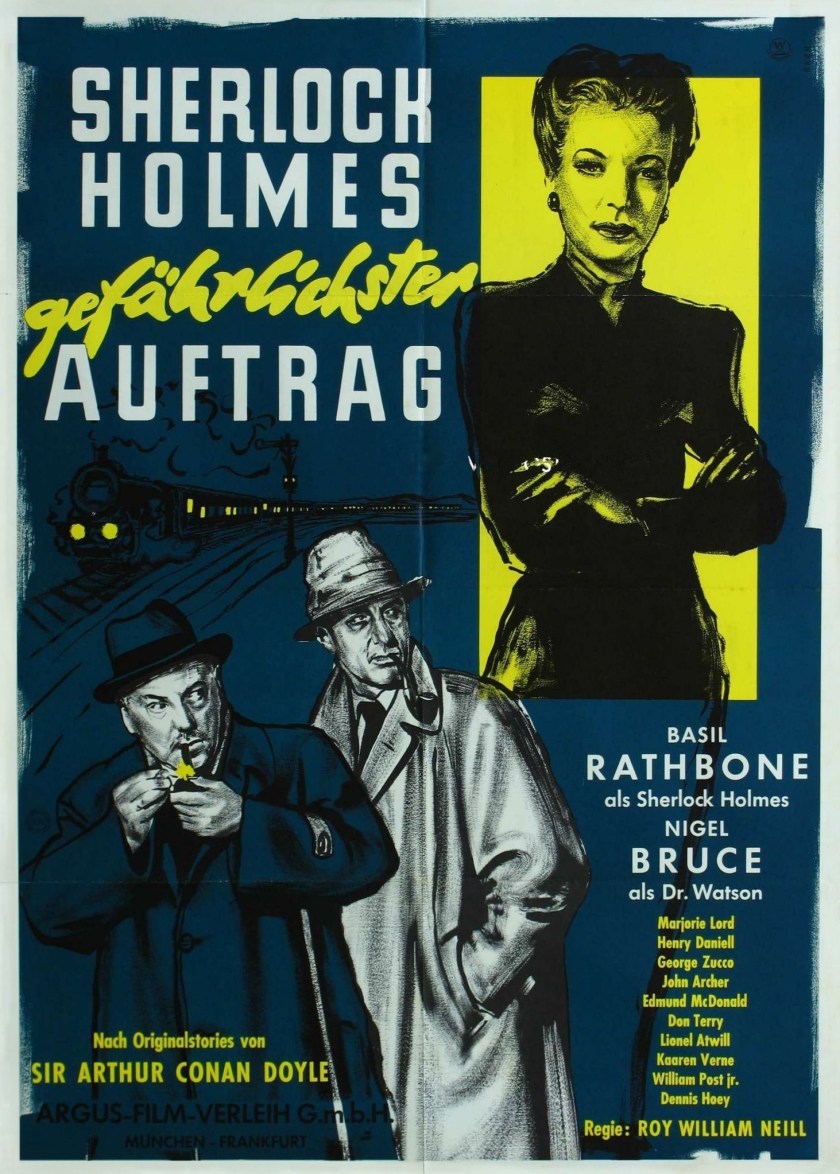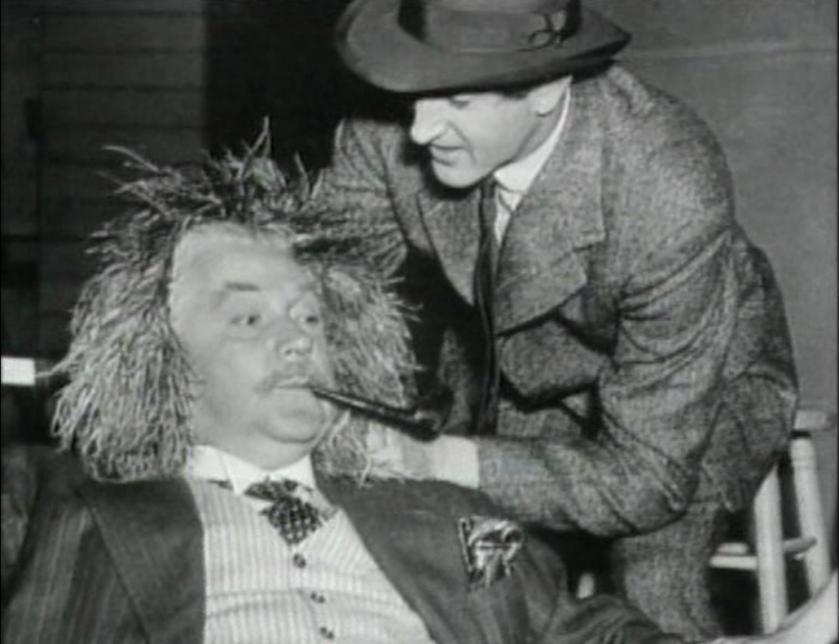The German Versions of Rathbone’s Sherlock Holmes Films
In 2009, film historian Amanda Field wrote England’s Secret Weapon: The Wartime Films of Sherlock Holmes, a book that explores the Sherlock Holmes films in their historical context. From the back cover:“Though the first two films were set in the detective’s ‘true’ Victorian period, Holmes was then updated and recruited to fight the Nazis. He came to represent the acceptable face of England for the Americans — the one man who could be relied upon to ensure an Allied victory.” It’s no surprise, then, that Basil Rathbone’s Sherlock Holmes films were not released in German theaters during the war years. Even those films that did not feature Nazis as Sherlock Holmes’s foe would have been deemed unacceptable in Germany because Sherlock Holmes was a British hero, symbolic of England. By the mid 1950s, however, West Germany had a friendly relationship with Great Britain, and German attitudes towards Sherlock Holmes had changed. But, instead of simply releasing the Sherlock Holmes films, Argus Filmverleih put together four composite movies, each of which is made using footage from …









